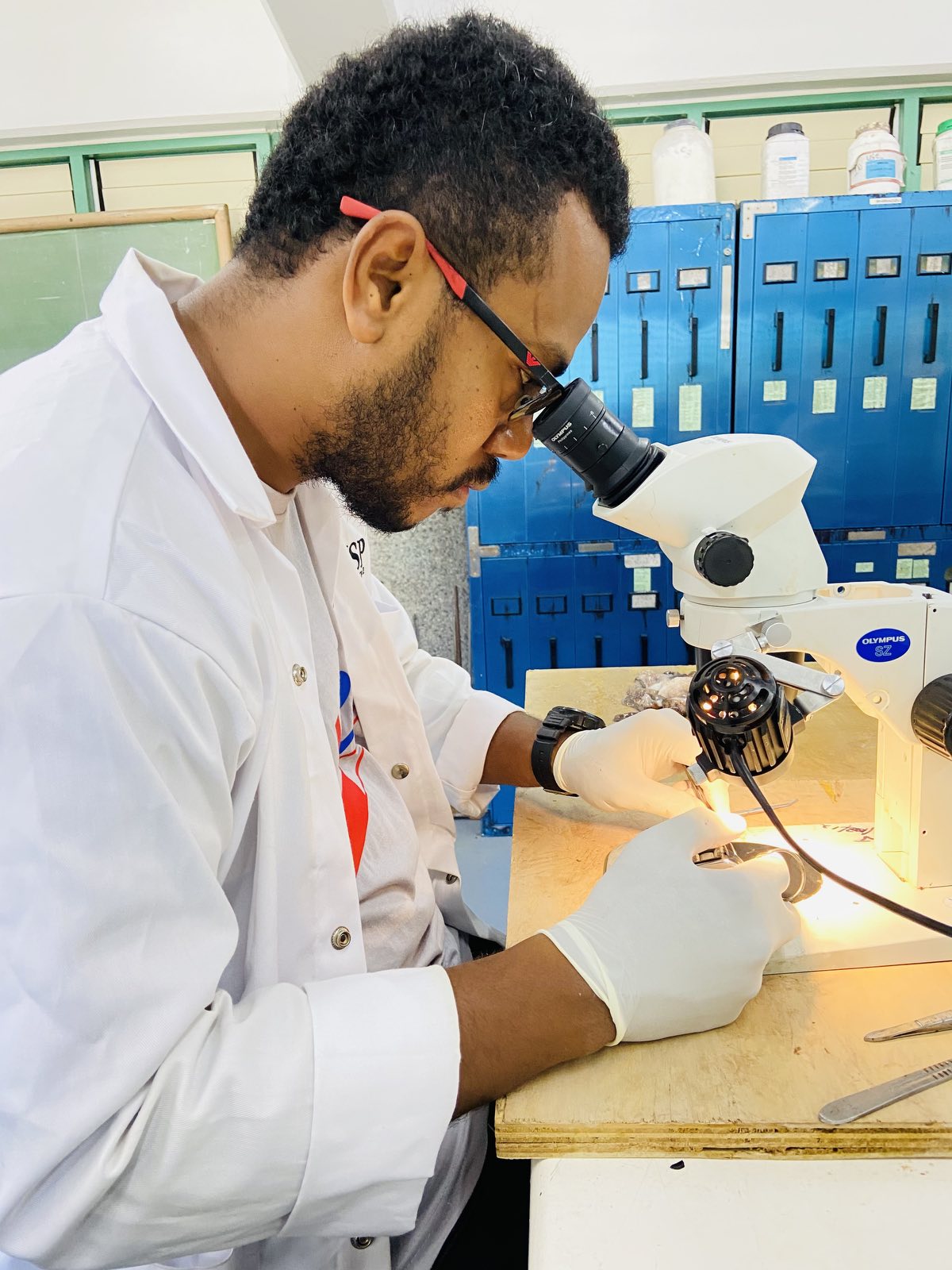Related News
 Epeli Loganimoce conducting octopus species identification assessment of octopus specimens obtained from Fiji’s municipal markets.
Epeli Loganimoce conducting octopus species identification assessment of octopus specimens obtained from Fiji’s municipal markets.
Suva, May 8th 2023: With its increasing market demand and the over exploitation of other marine resources; octopuses are rapidly becoming an important resource and commodity within the global seafood trade. However, there are still significant information gaps in the biology, exploitation and management of octopuses.
The recent publication titled Octopuses in the South-West Pacific region: A Review of Fisheries, Ecology, Cultural Importance and Management by Epeli Loganimoce, researcher and staff of USP Pacific European Union Marine Partnership (PEUMP) project successfully identified 23 species of octopuses from 11 genera in the families Amphitretidae and Octopodidae currently existing in the south-west Pacific region.
“The aim of this review was to identify and consolidate available information relating to the importance of octopuses in Fiji, Vanuatu, the Solomon Islands, New Caledonia, Tonga, Samoa and American Samoa.” said Epeli Loganimoce, Research Assistant, USP PEUMP project. “In particular, to better characterize octopus fisheries in the South Pacific region as a basis for improved fisheries management, identify species present and those most heavily exploited, and to describe the cultural relevance of octopus and their importance to the livelihoods and nutrition of coastal island communities in these Pacific Island Countries and Territories (PICTs)”.
This publication review was compiled through extensive and exhaustive research of comprehensive studies and findings cross referenced with internationally recognized databases.
Due to their relatively short lifespans, rapid growth rates, high natural mortality, and seasonal abundance changes, octopuses are a challenging resource to manage.
“This milestone publication will provide a baseline to which the South-West Pacific countries can begin to formulate national regulations specific to octopus fisheries as opposed to dependency on the overarching national fisheries legislations,” Lavenie Tawake, USP PEUMP project Team Leader.
Octopuses also play an important role in the folklore and customs of many Pacific Islanders, and this publication captures a summary of these for the aforementioned PICTs assessed.
In addition, this review identifies knowledge gaps that need to be addressed through future research. Proper identification will be the first key step towards appropriating relevant management strategies in these focus PICTs; and further supported by sustained fishery dependent and independent surveys to accurately monitor stock status.
USP is one of four key implementing partners of the PEUMP Programme, an initiative funded by the European Union and the Swedish government. The overall EUR 45million program promotes sustainable management and sound ocean governance for food security and economic growth while addressing climate change resilience and conservation of marine biodiversity. It follows a comprehensive approach, integrating issues related to ocean fisheries, coastal fisheries, community development, marine conservation and capacity building under one single regional action. The PEUMP programme is housed within the Institute of Marine Resources within the School of Agriculture, Geography, Environment, Ocean and Natural Sciences (SAGEONS).
Click here to access the published journal article.
About us
The Pacific-European Union Marine Partnership (PEUMP) Programme addresses some of the most serious challenges faced by Pacific countries. Among these are the increasing depletion of coastal fisheries resources; the threats to marine biodiversity, including negative impacts of climate change and disasters; the uneven contribution of oceanic fisheries to national economic development; the need for improved education and training; and the need to mainstream a rights-based approach and to promote greater recognition of gender issues to ensure inclusiveness and positive changes for Pacific island people. The seven-year PEUMP programme is funded by the European Union (EUR 35 million) and the government of Sweden (EUR 10 million). It is implemented by the Pacific Community (SPC), the Forum Fisheries Agency (FFA), the Secretariat of the Pacific Regional Environment Programme (SPREP) and the University of the South Pacific (USP) in close collaboration with Non-Government Organisations and the national authorities.